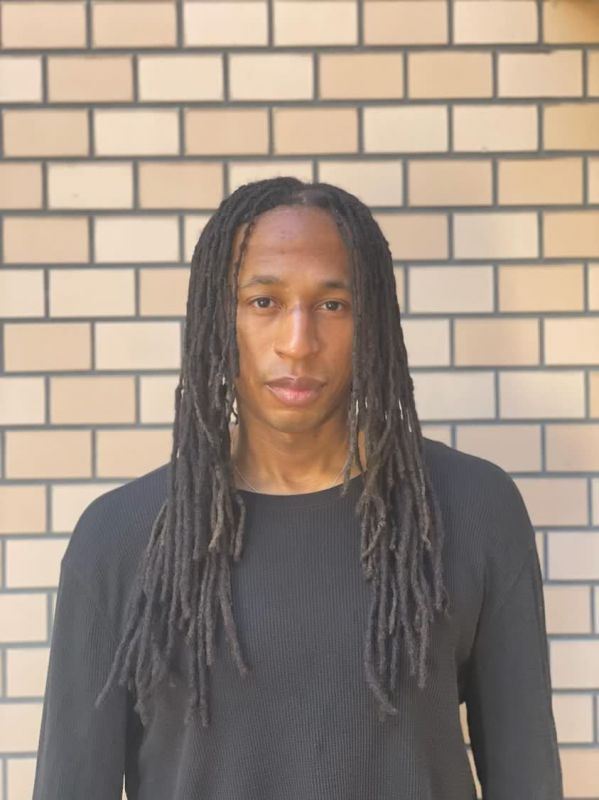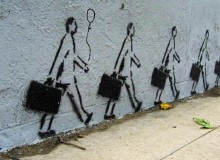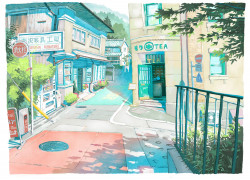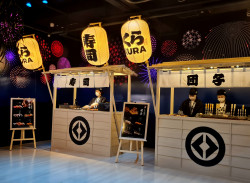
January 9, 2024
The Tokyo Resident Who Competed on Squid Game’s Reality Show
Emotions and goals—an insider look into the games
Recently, 456 people from around the world gave up their names for numbers and swapped their clothes for teal-green tracksuits to play a real-life Squid Game: The Challenge. Nayokenza Oliver (Player 357), a fellow Tokyoite and musician who survived through “Dalgona” and faced elimination in “Warships,” spoke with Metropolis to share an insider look into one of the highest-stakes game shows today.
Metropolis: To start off, I’d love to learn more about your creative and cultural background. I stumbled upon your music and couldn’t resist listening.
Nayokenza Oliver: Hey, thank you for listening! I really appreciate it, although now I feel extremely shy. I was born in New Jersey but grew up in Florida. During my teens, I went back and forth between Tokyo and the U.S. before relocating here in the late 2000s. Musically, I was influenced by seemingly random things like southern hip-hop, nu-metal, hardcore, Jpop, J-rock and background music at Walt Disney World.
M: What motivated you to participate in the Squid Game reality TV series, and what would success in the competition have meant for you?
NO: It was my wife, cousin, friends and bandmate who encouraged me. I also had an academic interest in what kind of production would go into creating a show of that scale.
If I were to have won the money, that would mean I’d be able to invest in my art and peace. I’d probably move to Gothenburg or Sapporo, build a cozy home studio, fund music videos and invest in growing my band’s presence. On a personal note, my wife and I would use the money for IVF treatments and/or adoption. But first, I’d have to buy her a proper wedding ring. I’d also give $100,000 to each immediate family member and donate money to charities that support research for childhood cancer.
M: I’m curious about your initial reaction upon entering the set. What was your impression of the dorm, and did living conditions contribute to the competition’s intensity?
NO: On our first day of filming, the very first set we entered was Red Light, Green Light. The energy in the room was electric. It was a mix of nervousness and excitement. But I was focused on trying to come up with pausing strategies because I was too terrified of the doll to look at her. [Laughing] Fast forward seven hours, we went back to a hotel we had to quarantine in days before filming. While we were starting to bond, we were also pretty tired and hungry.
The next day, we were swept away to the dorms. Ironically, the living conditions encouraged everyone to be polite for fear of annoying someone and being up for elimination. People held doors open for each other, said “please” and “thank you.” The feeling was one of us against the production staff and their ideas.
M: Squid Game is known for its physical and mental challenges. Can you describe one particular moment or game that stood out to you?
NO: Hands down Red Light, Green Light! That was the hardest thing I’ve ever had to do in my life. More painful even than my chest tattoo. [Laughing] But in all seriousness, I don’t know how I survived that. I was practicing box breathing and would count the seconds to see how long it would take for the itches on my face to go away.
At the end of the day, the only thing that really helped me was James (Player 269) teaching us the Korean song lyrics so we would know when to stop and land in “comfortable” positions. That, and also seeing my friends advance so far ahead of me.
M: Living in Japan as a “gaikokujin” can make international residents feel like outsiders. Since you had to live with contestants from around the world, did you feel a sense of belonging?
NO: Growing up in America, I came from a predominantly WASP upper middle-class background where I was often the only black child, aside from my siblings. Even though I adapted to it quite early on, I felt more like an outsider growing up in America than I did in Japan. Coming to Japan was a way for me to escape the white/black racial binary of American race relations. I kind of expected to be an outsider and was prepared for it.
I wasn’t expecting how many people I would become close to and how close we would become. The camaraderie was real! I made friends for life who I am looking forward to supporting and watching grow over the years.
M: The original Squid Game is a bit dark, and I personally find it difficult to watch! In a way, both shows explore themes of survival and morality. Do you believe people who “survive” The Challenge maintain or lose their sense of self?
NO: I also found the original hard to watch because I don’t necessarily find escapism in watching violence and human suffering. But the academic in me watched it because I knew it would become a cultural cornerstone. I thought it was a smart commentary on capitalism and the trials associated with the human condition.
As hokey as it might sound, being on the show kind of restored my “faith in humanity” as people were playing the game civilly, for the most part. I think most people, though they might’ve had a facade, had it fade away as they progressed through the games. So, I do believe that people who survived the games did so because they were able to keep their sense of self.
M: Do you feel that you learned more about yourself during the show, and were there any parallels between your artistic pursuits and the challenges presented?
I learned that I’m more calculated and laid back than I originally thought. My strategy was to “lay and wait in the shadows…”
A couple of years ago, a former colleague said something that stuck out to me: “Not all money is good money.” I feel that this parallels my artistic path because, while I never wanted to be a big superstar, I do want to make a living from music. The challenge here, like in the show, is: how can I resist the urge to “clout chase” while being self-assured, inspiring others to believe in me and my abilities?
M: Looking back, is there anything you would’ve done differently?
NO: Perhaps I would’ve cried more in my interviews so they wouldn’t get cut. [Laughing] I’m kidding. I played the game in a way that perfectly reflects my values and who I am as a person. From my point of view, the money was immaterial, and I’m not someone who likes to step on others’ toes. I wanted to bring my best and help others bring their best.
Perhaps I would’ve positioned the boat I was on in a different line in Warships. The way they edited the episode makes it look like we got annihilated when it was actually a very close and very emotional game.
M: Do you have any projects we can look forward to?
NO: I currently have three projects that I’m working on. I have a post-hardcore passion project called “i was the ocean once” and an instrumental pop project, “avecnayo.” Henceforth, all of my focus will be on the dance-pop band I just started with my friend and longtime collaborator Binamiya called “Jupiter Garden.” I’m happy to announce that we just finished our first single.








